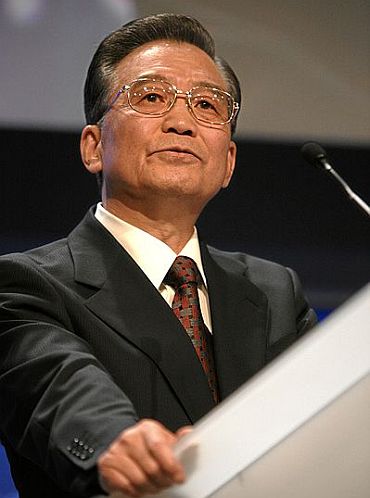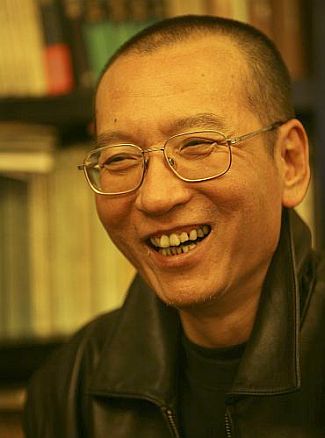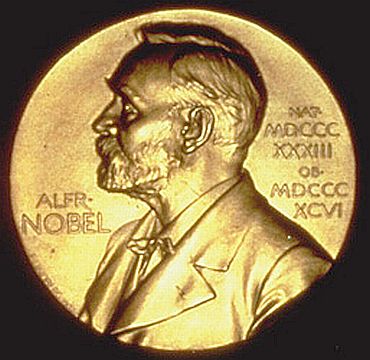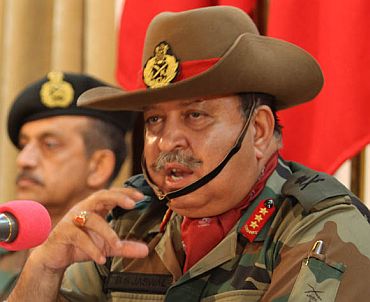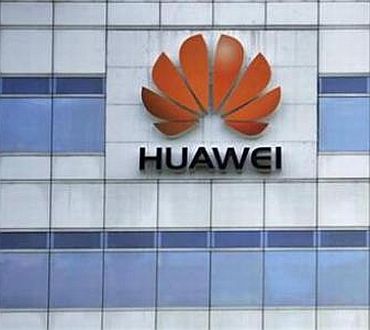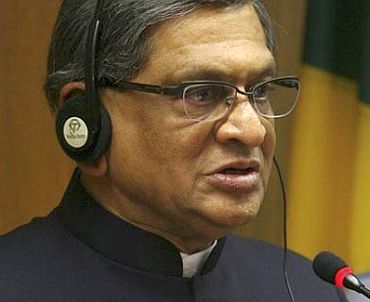 | « Back to article | Print this article |
Why New Delhi snubbed Beijing on Peace Nobel
Days before Chinese premier Wen Jiabao arrives in Delhi for a visit that is taking place after five years, India disregarded a Chinese request not to attend the Nobel peace prize ceremony for dissident Liu Xiaobo and ordered its ambassador in Norway, Bambit Roy, to go ahead and attend in person on Friday.
According to highly placed officials, China had issued at least four demarches, diplomatic notes that are in fact stern requests, to India and all other countries in Asia to stay away from the Nobel ceremony for Liu in Oslo.
Xiaobo, 55, is a Chinese literary critic, writer and professor. He was given a 11-year jail sentence a year before for having demanded democratic reforms and the end of communist one-party rule in China.
Click on NEXT to read further...
Why New Delhi snubbed Beijing on Peace Nobel
China had protested against the Nobel committee's decision to award Liu, saying: "Liu Xiaobo is a criminal who has been sentenced by Chinese judicial departments for violating Chinese law".
The Chinese demarches came between the first week of November and the first week of December, systematically piling pressure on New Delhi.
The decision to go ahead and attend the ceremony was taken on Wednesday, and "it went right to the top", the officials confirmed, indicating Prime Minister Manmohan Singh was on board the decision.
Why New Delhi snubbed Beijing on Peace Nobel
Only three other countries from Asia would attend the Nobel ceremony for Liu -- Japan, South Korea and Thailand. Nineteen others from Asia -- including Pakistan, Afghanistan, Iran, Iraq, Kazakhstan, Vietnam and even the Philippines, a long-term friend of the US -- have decided not to go.
Several European countries and the US will be represented.
The government official refused to link the Nobel attendance to Wen Jiabao's visit to Delhi next week, saying this was not a "bilateral" issue but a "multilateral" one.
Why New Delhi snubbed Beijing on Peace Nobel
The fact is that relations between India and China are continuing their downward slide since the time in 2008 that Beijing decided to staple visas for residents of Jammu & Kashmir to their passports, indicating it was not a part of the Indian Union.
And, earlier this year, even refused a visa for Lt Gen B S Jamwal, the army commander in Jammu & Kashmir.
Clearly, the delay in deciding whether India's ambassador to Norway should or not attend the Nobel ceremony was linked to a diplomatic appraisal of Wen's visit to India (he will go on to Pakistan from here).
Why New Delhi snubbed Beijing on Peace Nobel
The government sources said the pros and cons of attending the Nobel ceremony and Wen's visit were carefully weighed, at the end of which Delhi came to the conclusion that even if the Indian ambassador did not go, thereby accepting Beijing's sensitivities, "there was no guarantee that Beijing would accept Delhi's sensitivities on the Kashmir issue".
Government sources confirmed that if the Chinese, so intent on "saving face" in front of the world, "had not made it such a public issue, perhaps India would have accepted the Chinese request".
Asked if Premier Wen's visit to India was "over before it had begun," the officials disagreed vehemently, saying Delhi had been extremely sensitive to China's business concerns, especially on the telecom issue.
Why New Delhi snubbed Beijing on Peace Nobel
They pointed out that Huawei, the Chinese telecom company, had practically been banned from operating in the country, but that in recent months, Delhi had considerably relaxed its position on this front.
However, the officials said, Beijing had not reciprocated India's concerns and sensitivities.
Indian companies, especially those in pharmaceuticals and information technology, continued to find it very difficult to work in China, the officials said.
They stressed that Beijing began to make the Nobel attendance for Liu Xiaobo a litmus test for the bilateral relationship, but "India could not be seen at home to be buckling under Chinese pressure".
Why New Delhi snubbed Beijing on Peace Nobel
Therefore, the Indian ambassador had now been asked to go to the ceremony on Friday.
For the record, External Affairs Minister S M Krishna told his Chinese counterpart last month that Kashmir was a "core issue" for India, and Beijing should try and understand the implications of its decision to treat it as separate from India.
The government officials said they believed the Chinese had been upping the ante on Kashmir because of their increasing closeness to Pakistan, considered their "all-weather friend".
